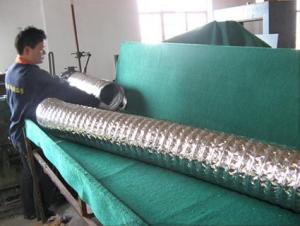When you think of sandwiches, you might imagine a delicious meal between two slices of bread. But in the world of construction and architecture, sandwich panels are a whole different story. These panels are a versatile and efficient building material, perfect for a variety of applications. Whether you’re looking to insulate a building, create a temporary structure, or even build a permanent home, sandwich panels can be the perfect solution. In this guide, we’ll walk you through the process of purchasing sandwich panels, from understanding the different types to finding the right supplier for your needs.
Why Choose Sandwich Panels?
Sandwich panels are a popular choice for many reasons. They’re lightweight, easy to install, and provide excellent insulation. Plus, they’re durable and can withstand a variety of weather conditions. Whether you’re working on a commercial or residential project, sandwich panels can be a great addition to your building materials.
Understanding the Different Types
Before you start shopping for sandwich panels, it’s important to understand the different types available. There are three main types of sandwich panels:
– Polyurethane Sandwich Panels: These panels are known for their excellent insulation properties and are often used in cold storage facilities and refrigerated transport.
– Polystyrene Sandwich Panels: Lightweight and affordable, these panels are ideal for temporary structures and provide good insulation.
– Rockwool Sandwich Panels: Durable and fire-resistant, these panels are perfect for buildings that require a high level of safety and durability.
Consider Your Project Needs
When choosing sandwich panels, it’s crucial to consider your specific project needs. Are you looking for insulation, durability, or a combination of both? Your choice of panel type will depend on the requirements of your project.
Finding the Right Supplier
Now that you know the different types of sandwich panels, it’s time to find the right supplier. Here are a few things to consider when choosing a supplier:
– Reputation: Look for a supplier with a solid reputation in the industry. Check online reviews and ask for recommendations from other professionals.
– Quality: Ensure the supplier offers high-quality panels that meet industry standards.
– Price: Compare prices from different suppliers to find the best deal for your budget.
– Customization: Some suppliers offer customization options, allowing you to tailor the panels to your specific project needs.
– Customer Service: A good supplier will have excellent customer service, ready to assist you with any questions or concerns you may have.
Customizing Your Sandwich Panels
If you have specific requirements for your project, you might want to consider customizing your sandwich panels. Customization can include:
– Size: Panels can be cut to fit your project’s dimensions.
– Color: Choose from a range of colors to match your building’s aesthetic.
– Core Material: Select the core material that best suits your insulation and durability needs.
– Surface Material: Opt for the surface material that offers the right balance of durability and appearance.
Installation Tips
Once you’ve purchased your sandwich panels, it’s time to think about installation. Here are a few tips to ensure a smooth process:
– Plan Ahead: Before you start, plan out where each panel will go and how they will be secured.
– Use the Right Tools: Make sure you have the appropriate tools for the job, such as panel cutters and adhesives.
– Follow Manufacturer’s Instructions: Each panel type may have specific installation instructions, so be sure to follow them carefully.
– Safety First: Always prioritize safety during the installation process. Use protective gear and work with a team if possible.
Maintenance and Care
Proper maintenance and care can extend the life of your sandwich panels. Here are some tips:
– Clean Regularly: Keep your panels clean by regularly removing dirt and debris.
– Inspect for Damage: Regularly inspect your panels for any signs of damage and address issues promptly.
– Protect from Extreme Weather: Take steps to protect your panels from extreme weather conditions that could cause damage.
Conclusion
Sandwich panels are a versatile and efficient building material that can be tailored to your specific project needs. By understanding the different types, considering your project requirements, and finding the right supplier, you can ensure that you make the best choice for your construction or architectural project. With proper installation, customization, and care, sandwich panels can provide years of reliable service.

